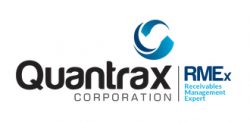Why did most of the major software providers begin to develop new software products about 5 years ago? Why are the same companies being sold or merged at an alarming pace? The answer is that they are all sitting on an infrastructure that is outdated and it is easier to start over rather than build on the strong foundation they created or excuse me, they did not create.
These systems were built to present screens with specific data to workers in the collection industry, so calls, letters and paperwork could be completed. I was a debt collector when the industry switched from ledger cards to computers and it was built to bring the data from the ledger card to the screen and nothing else. Well, most of the systems since then have accomplished the same thing – Get the account details on the screen and let the agent make the decisions. And why did the industry initially convert to computers? The FDCPA and other regulations required more control over the ledger cards that can be lost, changed, destroyed and altered very easily. In fact cards were lost daily.
Enter modern day collections and new regulations. Many years later, our systems fetch the account details to our screens and allow bulk append and updates; a great advancement but not much more. With the predictive dialer, we can also make millions of phone calls to the same phone numbers, not necessarily collecting more, but surely exposing ourselves to new lawsuits. The best improvements to the industry have been through vendors who are providing more technology such as dialers, payment portals or more that simply bolts on or integrates with the basic system. Many systems require work outside the system using SQL or custom programming. Many agencies and law firms that use SQL now have an SQL database staff member in their organization, so that they can be nimble enough to make changes to their system that the system will not allow them to do directly.
Here are questions you should be asking your software provider;
- How can your system stop a human from making a mistake?
- If there are business rules I can set up, can they be defined at the client, state and city level?
- Do you accurately count attempts, contacts, messages and letters, and manage contact frequency for multiple clients and jurisdictions?
- How can I make changes to the system without expensive IT personnel?
- What is the average dollar amount your clients are spending on custom programming annually?
- Why do my agents need to write on paper? It is a security risk.
- Are you encrypting sensitive data at rest, including client account numbers which may have credit card numbers?
- Can your consumers access their account and make a payment using a smart phone, tablet, a PC or an IVR?
- As mobile computing races ahead, are your management dashboards available on a smart phone?
- Is email and the internet a part of consumer communications?
If your software provider does not have a plan for these features, it is probably because their aging infrastructure does not support the modern data base required to create these options. Unfortunately, you cannot build new technology for today and tomorrow without committing to several years of development. If your software provider waited too long, the gap is probably too wide to clear with enhancements and “fixes”. I think you have two choices. You can run your business on a system of yesterday, or you can look for a new option.
About the Author
Phillip W. Duff President Phillip W. Duff the Founder of Lighthouse Consulting was trained in Six Sigma while working for Bombardier Capital in 2001, and is highly successful helping organizations improve their processes using the Six Sigma methodology. Mr. Duff has consulted with numerous companies over the last 10 years and has shown the ability to enact cultural change in a company. He has also initiated programs proven to drive positive revenue growth both as an employee and a consultant. His focus is to help CEO’s with a focus on growth. His knowledge of technology and background in debt collections have combined to help companies automate processes and identify which processes provide profits. Mr. Duff has also developed a unique process of initiating cultural change as a part of developing a revenue driven atmosphere in a variety of formats. This unique philosophy and technique are unseen to date. His substantial experience in the collection industry, Six Sigma core competency and extensive industry relationships can provide you and your team a matchless perspective into your accounts receivable business or any business strategy.
